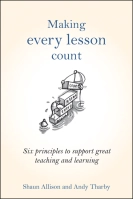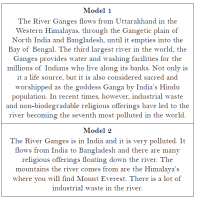Before the summer, I wrote about our approach to CPD for 2016-17 at Durrington – you can read about it here. The idea is simple. Every two weeks, subject teams will meet and talk about what they are teaching over the next fortnight – and how to teach it well. This approach fits with what the evidence suggests effective CPD should look like:
- Subject specific.
- Regular.
- Collaborative.
- Within the context of what is being taught at that time.
The first of these sessions was held today and I was fortunate to have the opportunity to listen in on some of the discussions that were taking place within the subject teams. They were all incredibly focused, rich and varied in their approach. I’ve tried to summarise some of the discussions below.
Science
Following the GCSE results in the summer, Steph Temple had looked at the question level analysis for each paper and identified questions that our students didn’t perform well in. The team then looked at these questions from the exam paper for the unit we are currently teaching Y11 (P2) and identified reasons why they missed marks e.g. not being able to recall that mains electricity has a frequency of 50Hz; not being able to calculate potential difference in series circuits; not being able to recall the unit of momentum.
The team then discussed and shared ideas about how they would address these points in their teaching over the next fortnight.
Maths
The maths department adopted a similar approach to science. Emma Mason had identified ‘circle theorem’ as a weak area of student performance in the summer exams – and a topic that was about to be taught.
With this in mind, the department got together in small groups to share ideas about why students performed poorly with this and how they could address it. They then set to work producing resources that could be shared and used, to help address any misconceptions that students might have. The team also worked together to collate a variety of exam questions that could be used by students, to help them work on this weak area.
PE
The PE team were watching videos of KS3 students doing gymnastics. After they had watched the video, they then discussed the ‘threshold’ that they would assess the student work at. This generated some interesting discussion and was important as a standardisation exercise.
Following this and once the team had agreed on their assessment, they then discussed the implications of this for teaching. In particular, how they would question and give feedback to the students to challenge them to improve their performance.
Business Studies
The Business Studies team were discussing how they could question students, to challenge and develop their thinking, in a specific topic that they were all about to teach. Based on his experience of teaching this topic, Pete Kelly was pointing out how students usually only give superficial answers when questioned about ‘gaps in the market’. They often forget to talk about why it exists and how businesses know if there is a gap – so this needs to be the focus of their questioning, when they are teaching this topic.
Pete then went on to demonstrate how he draws simple graphs, and uses these to get students thinking about changes in prices and demand. He then described how he gets students to think about the topic with a level of challenge that is close to A’ level e.g. think of an example of a product where increasing the price, will increase demand and why? By ‘scaling up’ in this way, understanding the topic at the level they need to, then becomes easier.
SME
The SME team were being led by Jason Ramasami who was sharing ideas on how to teach ‘Beliefs’ for non-specialist teachers. Based on his specialist knowledge, Jason was sharing ‘easy to access’ materials and anecdotes, which would engage the students, but didn’t require an in-depth specialist knowledge. He then went on to describe four key questions, which he uses to start the series of lessons, to help students understand that everyone has beliefs even if they do not describe themselves as religious. This was an excellent way of helping non-specialist staff remove some potential barriers to teaching this topic, as well as allowing Jason to share his experience of teaching his students.
English
There were purposeful discussions taking place in English related to the best strategies for analysing unseen poetry – a key skill for the new GCSE. Led by Bridget Norman the English team were working through the process of analysing the poem in relation to a specific exam question. This shared approach allowed the team to evaluate and review the technique that they would be teaching to the students and identified potential issues and problems that students may have with this technique. Completing the activity in this way, also allowed all of the teachers to have a common approach and ensure consistency across the department when teaching the students.
MFL
In French Pam Graham and her team, were discussing the written element of controlled assessment. In particular they were focussing on developing specific phrases, which the students could use in their writing to reach the highest marks. There was a specific focus on developing the students’ vocabulary both in French but also English, which would have many cross-curricular benefits. Again this shared approach, meant that all staff were able to contribute and that there would be a consistent approach to teaching this element of the course.
Art
Art had a slightly different focus, but still a very important one, as they concentrated on existing work that had been produced by Year 11 students. Led by Gail Christie, the team moderated and evaluated existing work and discussed strategies and techniques which could be used to further develop the work. This will not only benefit individual students, but also allows teaching ideas and strategies to be shared effectively in the team.
Another activity which had been completed by the Art team, was an ‘audit of needs’. Here the team have identified areas of weakness/development in their practice and scheduled a series of workshops for future sessions, where an ‘expert’ in their team will deliver techniques or strategies to support their teaching. This is an excellent way of sharing good practice to ensure consistency across the department.
Geography
There were two main foci in the Geography session led by Ben Crockett. Firstly, the team focussed on developing better 8 mark answers, which reflect the changes in the approach to marking which were identified from last summers’ GCSE exam. Ben had produced a model answer and a discussion was held about how that answer linked to the mark scheme and what strategies the teachers could use to hep the students produce a similar answer.
The second part of the session focussed on the new GCSE specification. Here the team discussed the lessons that would be taught to year 10 over the next fortnight and shared strategies or techniques which would ensure consistency within the department.
Both of these aspects were designed to increase the level of challenge for the students and to ensure that they had to ‘think hard’ about their understanding and knowledge.
Having listened to just a sample of the discussions this evening, it’s impossible to imagine how they can’t do anything other than support and enhance the quality and consistency of teaching within the subject teams. Surely that has to be the purpose of CPD?












Great to see teaching and learning at the forefront with specific and important goals in mind for subject based PD.
At the top of the post, you mentioned that the approach was based on what the “evidence suggests CPD should look like.” Can you please point me towards the source of this?
Thank you for writing the post!
Pingback: The problem with INSET: the great training robbery | the unconscious curriculum
Anything for Design and Technology?
Pingback: O Wonder! | Karen E. Jones Education
Pingback: Getting that little bit better – supporting teachers with personalised CPD | Class Teaching
Pingback: Getting gritty with year 7 | Class Teaching
Pingback: 2016 – a Review | Class Teaching
Pingback: Now that’s what I call CPD | Class Teaching
Pingback: Subject Planning and Development Sessions | Making Our Best Better
Pingback: Why Modelling? | Class Teaching